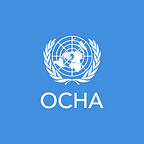“I live in Mogadishu”, by Justin Brady
On 19 June 2013, the UN compound in the Somali capital, Mogadishu, was attacked by non-State armed actors. At least nine people were killed. The attack came six months after the UN had expanded its presence in Mogadishu, as the Government wrested control of the capital city. Following the attack, the UN scaled down its presence in Mogadishu and expanded its remote operations from Nairobi, Kenya. Now that the UN Office for the Coordination of Humanitarian Affairs (OCHA) has returned to Mogadishu, its Head of Office, Justin Brady, writes about the daily reality of working in the Somali capital.
I live and work in the Halane area of Mogadishu, which flanks the airport. Nowadays, Halane is populated almost entirely by African Union troops (22,000 in total, most of whom are from East African countries and sent to support the fledgling federal Government), members of the UN Assistance Mission in Somalia (AMISOM) and other UN agencies, which is why some sceptical Somalis call it “the occupied territory”. Ordinary Somalis will find it difficult to access areas of Halane other than the civilian airport terminal.
I happened to be out of town the day the attack occurred. A vehicle-borne improvised explosive device destroyed the front gate of our office. Suicide attackers followed. They were eventually cornered in the compound and killed, but only after they had killed a number of guards and staff. I knew each of the victims to some extent, and one was a very close friend.
Moving into Halane headquarters was full of complications. I still breathed the same air, watched the same stars, felt the same rain (on the rare occasions that it rained) as my fellow Somalis and NGO workers, but things were not ideal. It was very difficult to access our partners due to insecurity, and we had to constantly work to separate any conflation or misperceptions between humanitarian and military operations.
Despite this, there are multiple advantages to where we are now. In addition to interacting with the humanitarian agencies based in Halane and with partners based just outside, we engage daily with the political mission, to ensure their decisions are informed by humanitarian concerns. And we have strengthened civil-military coordination with AMISOM, reiterating our concerns around civilian protection and humanitarian access at every opportunity. Anyone who knows how AMISOM operated four or five years ago will see that while imperfect, those areas have significantly improved. Our national staff are with us again, though making their way into the compound can be perilous. In July 2016, an attack at the main gate killed a UNHCR colleague, the father of three beautiful young children.
Working in Mogadishu as opposed to Nairobi, I am able to regularly travel around Somalia at very short notice. For example, I travelled to Belet Weyne in the south to see the extent of the flooding earlier this year, and to Gaalkacyo in the north a couple of months ago to visit people who had been freshly displaced by conflict.
The humanitarian situation is critical all over Somalia, particularly in the northern regions. Altogether, 5 million people — or 40 per cent of the population — need some kind of assistance, and over 1 million people cannot access enough food to survive. Malnutrition levels among children under age 5 are extremely high, with more than 320,000 children acutely malnourished. A recent spike in violence led to over 100,000 people being freshly displaced across the country. This has put a strain on limited resources and the ability of humanitarian agencies to scale up to the level required. Now more than ever, we need to strengthen the coordination of our collective response in Somalia. That is why we are here to stay.
To find out more about the humanitarian situation in Somalia and OCHA’s work there, go to: http://www.unocha.org/somalia
